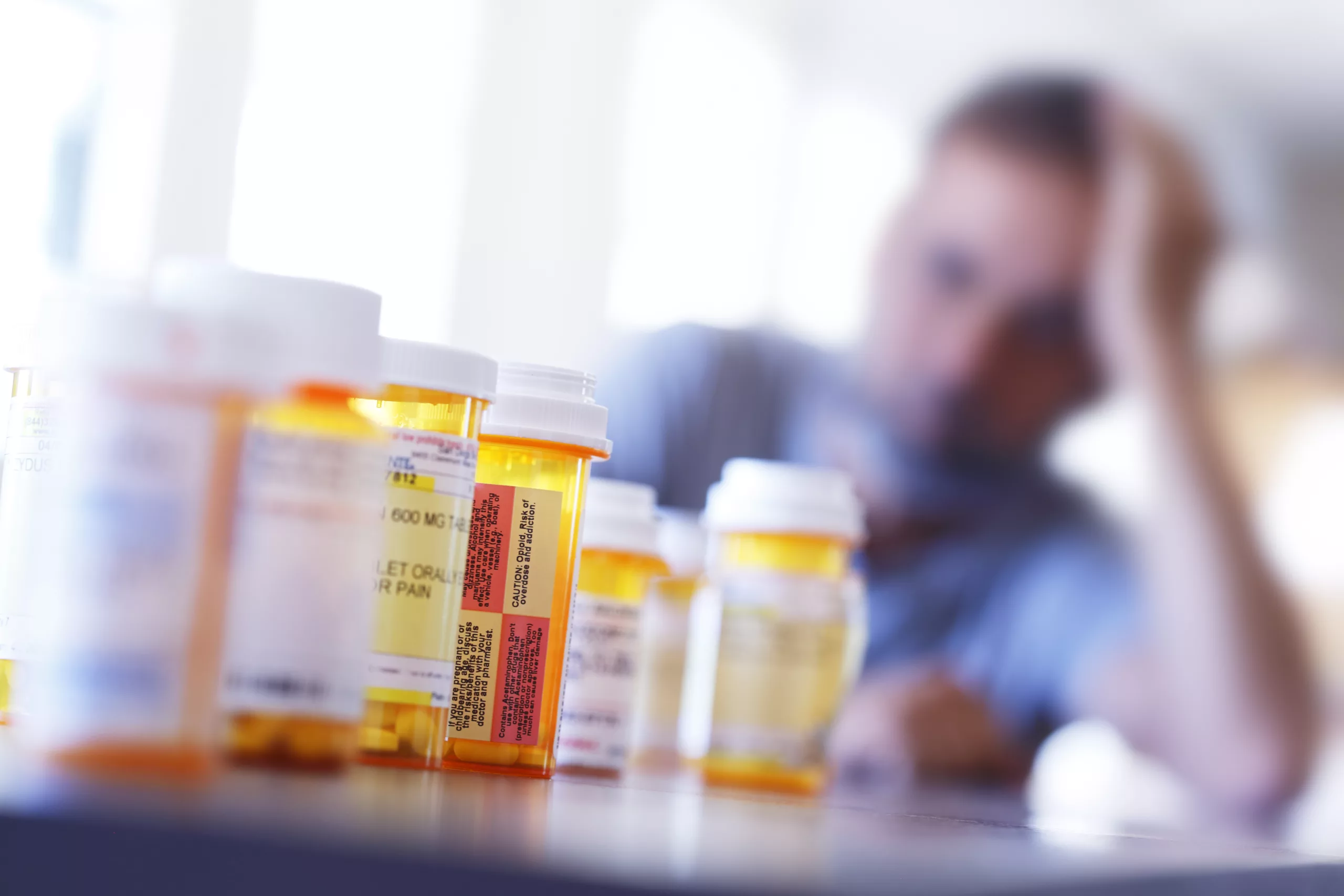
Education Center
Opioid use disorder is a substance use disorder characterized by extreme physical or mental dependence on opioids. Opioids are a class of drugs often used to relieve intense or chronic pain.
Similar to other substance use disorders, opioid use disorders do not discriminate by gender, age, ethnicity, etc. They can take over a person’s life and have deadly consequences. At the very least, they can greatly impact one’s relationships, social life, career, etc.
If you or someone you love are struggling with opioid addiction, it is important to seek professional help as soon as possible.
What Are Opioid Drugs?
Opioids are a class of drugs found in the opium poppy plant that cause a variety of effects in the brain. They block or reduce the number of pain signals sent to the brain, making them effective pain killers.
In carefully controlled amounts, opioids may be prescribed by a doctor or other medical professional. However, opioids also cause the brain to release endorphins, causing the user to feel happy, euphoric, or high. These characteristics make opioids highly addictive. Often, individuals may become addicted to prescription painkillers, and then turn to illicit drugs like heroin. Heroin is cheaper and easier to access than to prescription drugs.
Opioid drugs include:
Risk Factors of Opioid Addiction
Substance use disorders can be caused by a number of genetic, environmental, and behavioral factors. Misusing prescription medications can also lead to substance abuse or addiction. It’s important to closely adhere to prescription instructions as set by a medical professional.
Known risk factors of opioid addiction include:

Signs and Symptoms of Opioid Addiction
Symptoms of substance use disorders, including opioid use disorders, can be physical, psychological, or behavioral. In many cases, it can be difficult to ascertain whether someone is struggling with addiction. Potential warning signs of opioid addiction include:
Physical
Psychological and Behavioral
Health Consequences
In most cases, opioid drugs are safe when used correctly as prescribed by a medical professional. However, when misusing prescription opioids or abusing illicit opioids, it can result in a number of health consequences such as:
It’s important to keep in mind that these health consequences are not a requirement for an opioid use disorder. Addiction can occur before these health consequences manifest.
Opioid Withdrawal Symptoms
Withdrawal symptoms occur when one stops using an opioid, often after regular or heavy use. A person going through opioid withdrawal may experience a number of undesired physical and mental effects as their body tries to filter out the drug. Effects of withdrawal usually increase in intensity over time until the process is complete.
Initial symptoms of opioid withdrawal (usually occur within 24 hours):
Later symptoms of opioid withdrawal (usually occur after the first day or so):
The effects of opioid withdrawal are often extremely intense. Some drug rehab providers, such as High Focus Centers, offer Medication Assisted Treatment (MAT) to help individuals safely overcome their opioid addiction under medical supervision. This type of therapy can mitigate the effects of opioid withdrawal symptoms and reduce cravings during the most difficult periods of early recovery, increasing chances of finding long-term sobriety. Importantly, MAT has been proven to be most effective when combined with evidence-based therapy or counseling to address any underlying issues that may have led to the addictive behavior.

Signs of an Opioid Overdose
Every year, thousands of deaths in the United States are attributed to opioid overdose. If you fear that someone has overdosed on opioids, call 9-1-1 right away.
Signs that someone may have overdosed include:
How We Can Help
The treatment staff at High Focus Centers has the experience and expertise to help anyone struggling with a drug addiction. Our team utilizes a variety of evidence-based treatment models to address the client’s unique needs. If you or someone you love are struggling with opioid addiction, contact our team today to have a conversation with an addiction treatment specialist. See how we can help on the path to an addiction-free life.


